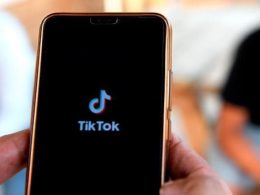“Did you just put a line of coca?” Someone asked at the austere dinner – standards of capacity and masks of the covid world in between – in which he was on Saturday. We were watching the Eurovision final – like 90% of Spain, or so it seemed on Twitter – and the camera had just focused on the Italian delegation in the middle of the voting. We laughed at the absurdity and at what it seemed that we had seen wrong, but the truth is that we had not been, by far, the only people who had visualized it.
A few minutes later, it was material of memes, viral comments, scathing humor on social networks and all the usual things that usually happen on Twitter with news events and curiosities. When the gala had finished and Italy had been proclaimed the winner of the festival, whether or not the singer of his group had snorted live for all of Europe was one of the topics that appeared in the conversations.
Everything continued on Twitter for hours and more hours, well into Sunday, while the singer’s first name – viral for other reasons as well – became a trending topic. Apparently, the French tweeting universe was even asking for her disqualification (and for her singer to become the winner).
Did the singer in question really use drugs live?
Logic says that it is unlikely and he himself has come out several times already explaining first that he did not consume drugs and then that what is seen in images is his reaction after breaking a glass. The organization of the contest has made announcements and has confirmed the existence of glass remains.
The singer himself has even volunteered to take a drug test. For what we care about, and for what this viral Eurovision anecdote can contribute in terms of online reputation, it is not even relevant. What’s interesting about this story for marketers and those who need to understand how the internet works and how stories settle in seconds right now is the speed at which the story spreads. Of course, yes, and if the explanations of the protagonist of the story are accepted, all this can also be analyzed to understand how collective hallucinations work and how the internet supports them, confirming what we think we have seen even if it has not happened.
What we see and what we think we see The Italian plot also positioned itself as one of those recurring themes in WhatsApp conversations. In one of the sessions a participant commented on something she had read on Twitter: it was a comment from someone who pointed out how we get carried away by prejudice. If the protagonist of the gesture had been the singer from Switzerland, he said, it is unlikely that the conclusion would have been reached that he was using drugs live or that the scandal would have escalated in such a disproportionate way.
One, it could be concluded, seems like a “good boy” and the other does not. This whole issue of biases and how they cover what we see, completing the information we receive, is a very important lesson that companies must take into account. It may be that when Internet users are asked directly, they say that they are fair and that they see things in the most balanced way possible. However, this is not true. We all have biases, which we have incorporated in one way or another and of which we are more or less aware, but which affect how we perceive the information we receive.
Reputation burns in seconds It’s not the only idea marketers should get out of this story: what’s especially interesting is the speed at which this story was shared, multiplied, and became part of the collective conversation. So much so, in fact, that in the press conference itself with the winners – and how it ended up quickly uploaded to Twitter for everyone’s consumption thanks to the trending topics and current topics – one of the questions was already directly whether or not he had snorted. cocaine on the screens of half Europe. Times were minimal.
The story circulated so fast and had become in a matter of minutes one of the great issues of the moment. Neither the group nor the organization of the contest, which were obviously concerned with something else, could do much about what was happening. This is, possibly they did not realize how the scandal was breaking out between their hands, but even if they had wanted to do damage control in real time, it is most likely that they would not have been able to.









